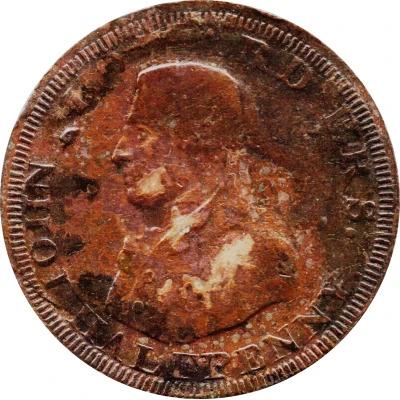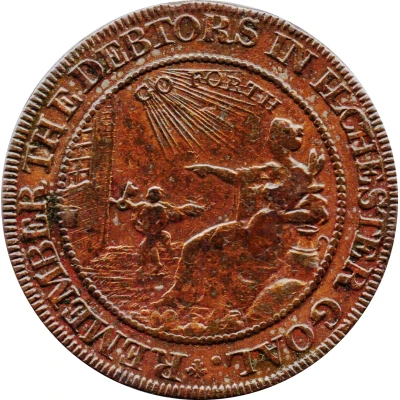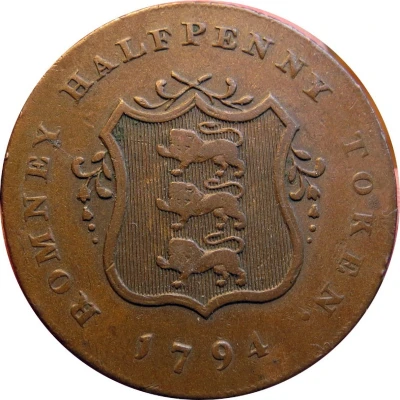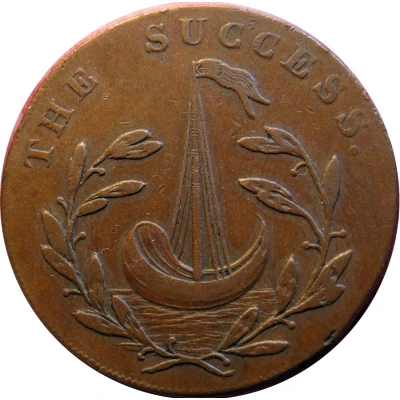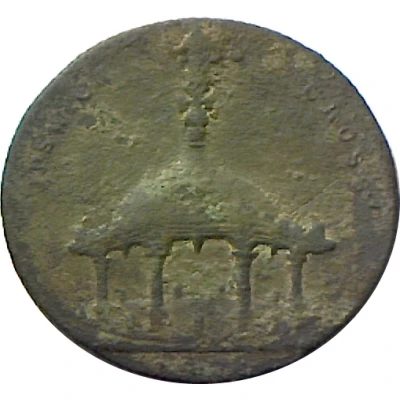
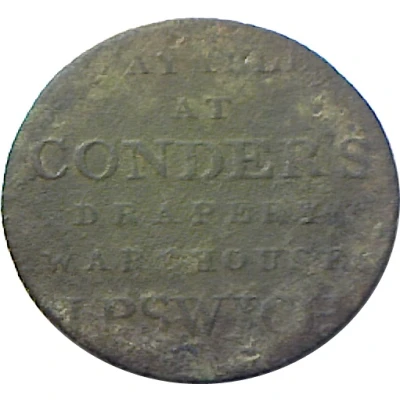

© ZacUK
½ Penny Suffolk - Ipswich / J. Conder
1794 year| Copper | 11.5 g | 29 mm |
| Issuer | United Kingdom (United Kingdom, British Overseas Territories and Crown Dependencies) |
|---|---|
| Type | Token |
| Year | 1794 |
| Value | ½ Penny (1⁄480) |
| Currency | Conder tokens (1787-1797) |
| Composition | Copper |
| Weight | 11.5 g |
| Diameter | 29 mm |
| Thickness | 1 mm |
| Shape | Round |
| Technique | Milled |
| Orientation | Medal alignment ↑↑ |
| Demonetized | Yes |
| Updated | 2024-10-09 |
| Numista | N#78985 |
|---|---|
| Rarity index | 86% |
Reverse
Plain design with horizontal legend across 6 lines, toothed border
Lettering:
PAYABLE
AT
CONDER'S
DRAPERY
WAREHOUSE
IPSWICH
Edge
Diagonally milled
NOTE: varieties exist
Comment
James Conder was a linen draper and ran a drapery and haberdashery business at Tavern Street, Ipswich. He was also an ardent collector of tokens and was one of the first people to catalogue the 18th Century independently minted copper trade coinage. He published this first catalogue which would remain the definitive source concerning these coins for almost 100 years until it was superseded by that of Atkins in 1892.Conder did not simply study the tokens; he also issued his own tokens to advertise his drapery business. At the time the British Government did not issue low value coinage as they had not been required. However, the way that the population worked and was paid was changing and a large demand was developing throughout the country for low denomination coins. Many businesses were encouraged to produce their own tokens and to this day, this type of coinage bears the name of James Conder.
Interesting fact
One interesting fact about the Token ½ Penny (Suffolk - Ipswich / J. Conder) 1794 from United Kingdom is that it was issued during a time of currency shortages in the late 18th century. To address this issue, local businesses and merchants began issuing their own tokens, like this one, which were accepted as currency by the community. This coin is a rare example of a privately issued token that has survived to this day, providing a unique glimpse into the economic history of the time.
